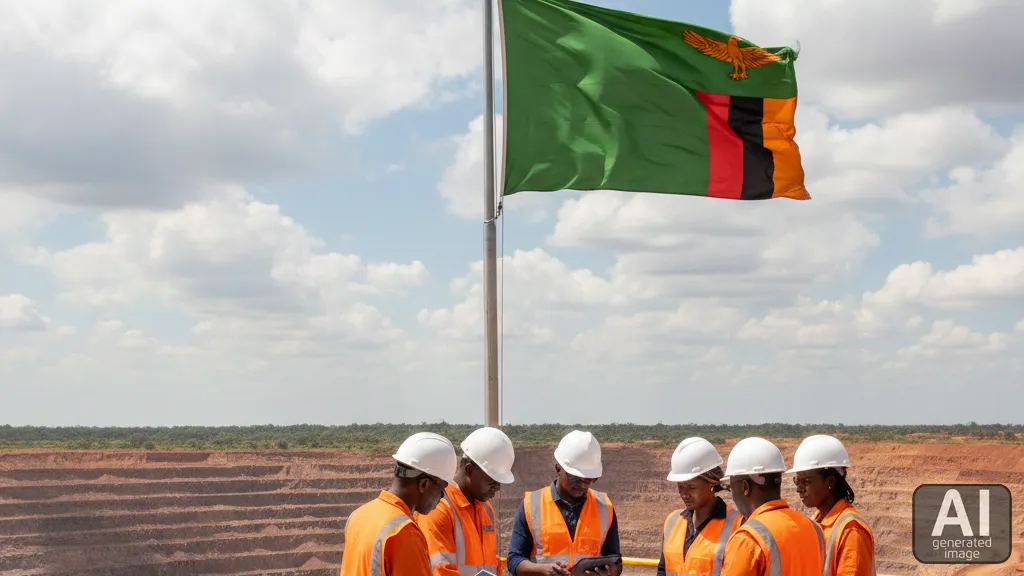Zambia Overhauls Ministry of Mines to Boost Efficiency and Oversight

Zambia launches the Minerals Regulation Commission to boost mining oversight, streamline regulation, and strengthen sustainable sector growth.
The Government of Zambia has undertaken a significant institutional reform aimed at strengthening regulation and improving operational efficiency in the mining sector. At the center of this reform is the establishment of the Minerals Regulation Commission, a newly created statutory body designed to enhance oversight, streamline administrative processes, and support sustainable mineral development across the country. This shift signals Zambia's commitment to modernizing its mineral governance framework and ensuring that the sector continues to contribute meaningfully to national economic growth.
The new Commission has been legally constituted through an Act of Parliament and will operate independently from the traditional structures of the Ministry of Mines and Minerals Development. Its leadership will be anchored by a Director General who will supervise a workforce of more than 200 professionals tasked with managing core regulatory functions. The Commission has been granted full authority over critical areas such as mining rights administration, as well as the regulation of safety, health, and environmental standards. By integrating the Mine Safety Department and the Mining Cadastre Department into its structure, the Commission is positioned to harmonize procedures that were previously fragmented, resulting in faster decision making and greater institutional accountability.
In addition to consolidating existing bodies, the Commission introduces two specialized departments that address emerging needs in the sector. The Artisanal and Small Scale Mining Department will focus on the growing ASM sub sector, which involves large numbers of local miners who often lack formal support systems. Meanwhile, the Large Scale Mining and Mineral Investment Promotion Department will concentrate on attracting and managing significant investments, ensuring that Zambia remains competitive as a mining destination. While these changes take place, the Geological Survey Department will continue operating under the main Ministry, maintaining its fundamental role in geological mapping and mineral resource assessments. The government has also prioritized decentralization by creating regional offices to bring services closer to mining communities, supported by office space and essential equipment that are already secured for the Commission’s rollout.
Overall, this restructuring is expected to reshape the governance landscape of Zambia’s mining industry by creating a more responsive, transparent, and efficient regulatory environment. Stronger oversight and clearer administrative processes may help reduce bottlenecks, enhance investor confidence, and promote safer and more environmentally responsible mining activities. For Africa’s broader mining sector, Zambia’s model could serve as an example of how structural reforms can stimulate investment, improve resource management, and strengthen long term contributions to national and regional economies.
Mini Glossary
- Statutory body: An organization created through legislation to carry out specific government functions.
- Mining cadastre: A public registry that records mining rights, licenses, and concessions.
- Artisanal and Small Scale Mining (ASM): Informal or semi formal mining operations, usually low tech and labor intensive.
- Geological mapping: The process of documenting the types and distribution of rocks and minerals in a region.
- Mineral governance: The systems, laws, and institutions that regulate how minerals are managed and exploited.
